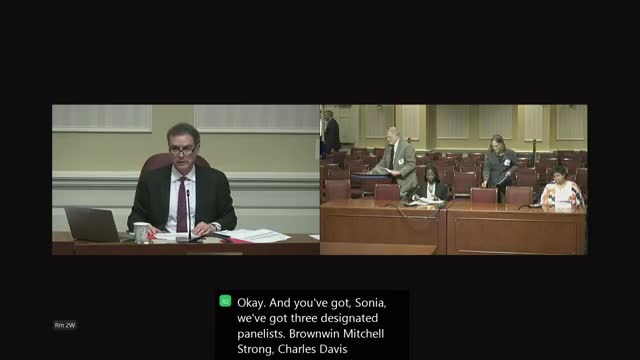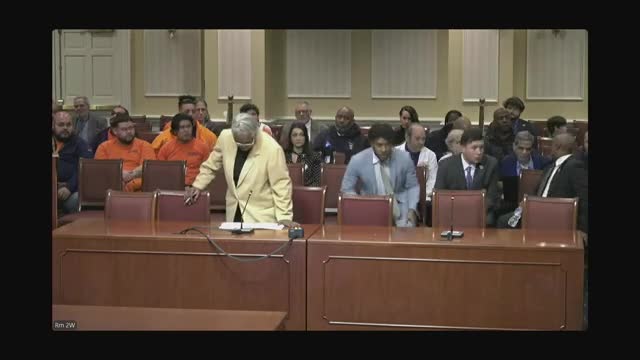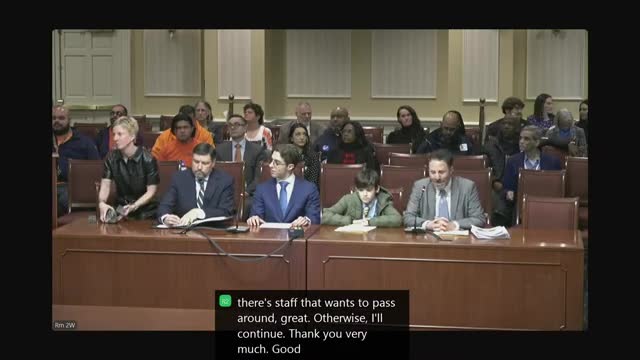Article not found
This article is no longer available. But don't worry—we've gathered other articles that discuss the same topic.

Sponsor seeks state designation for Natural History Society of Maryland as official natural history museum

Senate bill would make Nov. 1 Maryland Emancipation Day a state holiday; sponsor details local history

Intern testifies for bill to codify Aug. 31 as Overdose Awareness Day in Maryland

Committee hears joint resolution reaffirming support for diversity, equity and inclusion

Senate sponsor urges Maryland to press federal officials on treaty to prohibit nuclear weapons

Senate committee hears bill to set January 13 as Korean American Day in Maryland

Supporters say naming Orange Crush state cocktail could boost Maryland tourism and small businesses

Panel tells committee chromite shaped Maryland industry; bill would name it state mineral

